[Dramaland Catnip] Marriage before dating
by Anisa
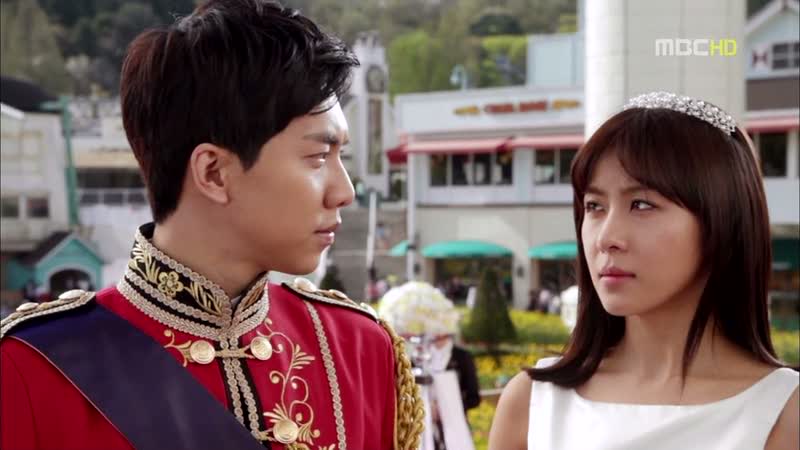
The King 2 Hearts
There’s something about the premise of near-strangers making the ultimate commitment to each other that draws me in every time. Whether it’s an arrangement they’ve been pushed into by their families, or a mutually beneficial ruse that they plan to dissolve once it’s no longer useful, marriage before dating always leads to hilarious hijinks and delicious emotional conflicts. I love contract dating as much as the next drama addict, but wedding bells give the relationship an added weight, and higher stakes. Marriage not only forces our lead couple to officially move in together (and pretend to share a bedroom!); it makes them instant partners in many aspects of life, and joins their two families. This means that when the fallout comes—and it always does, by dramaland law—it’s much more painful, and the OTP has to work that much harder to repair the damage.
These practical nuptials tend to come in three types: arranged marriage, shotgun marriage, and contract marriage. The first is often due to family pressure, as in Sweet 18 and My Little Bride, both of which hinged on an ailing patriarch insisting on an old promise between friends to marry their grandchildren to each other one day. Fair warning: Both of these have a steep age difference between husband and wife, and the heroines both start out in high school. I personally found them sweet and tastefully handled, but I know everyone’s mileage varies on this issue.
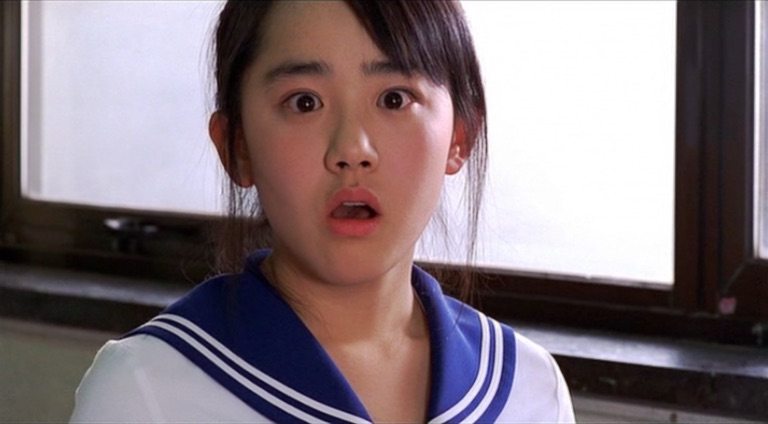
My Little Bride
Sweet 18 is the story of a troublemaking high school senior betrothed to a stern, serious prosecutor from an extremely traditional family. They first meet when he catches her sneaking into a club he raids, so they start out hating each other—she thinks he’s a stick in the mud and he finds her unutterably childish. Rather than being intimidated by her older, much smarter husband, this heroine is feisty and smart-talking, and is refreshingly honest about her growing feelings for him. It’s delicious to watch the straitlaced hero be completely bowled over—and eventually charmed—by this whirlwind that’s suddenly come into his life. I really liked how he always respected her once they were married, and did his best to treat her as his equal in the relationship, never talking down to her because of her youth.
My Little Bride is a movie, but Moon Geun-young and Kim Rae-won were so adorable in it that I couldn’t leave it off my list. Husband and wife sleep in separate bedrooms and bicker like best friends. There’s also the added wrinkle that he’s a student teacher at her school, which means their marriage is a secret from everyone except their families, leading to various comical misunderstandings. Their gradual realization of their feelings for each other is very sweet, as is the chemistry between the leads, who are breathtakingly young and charming in this film.
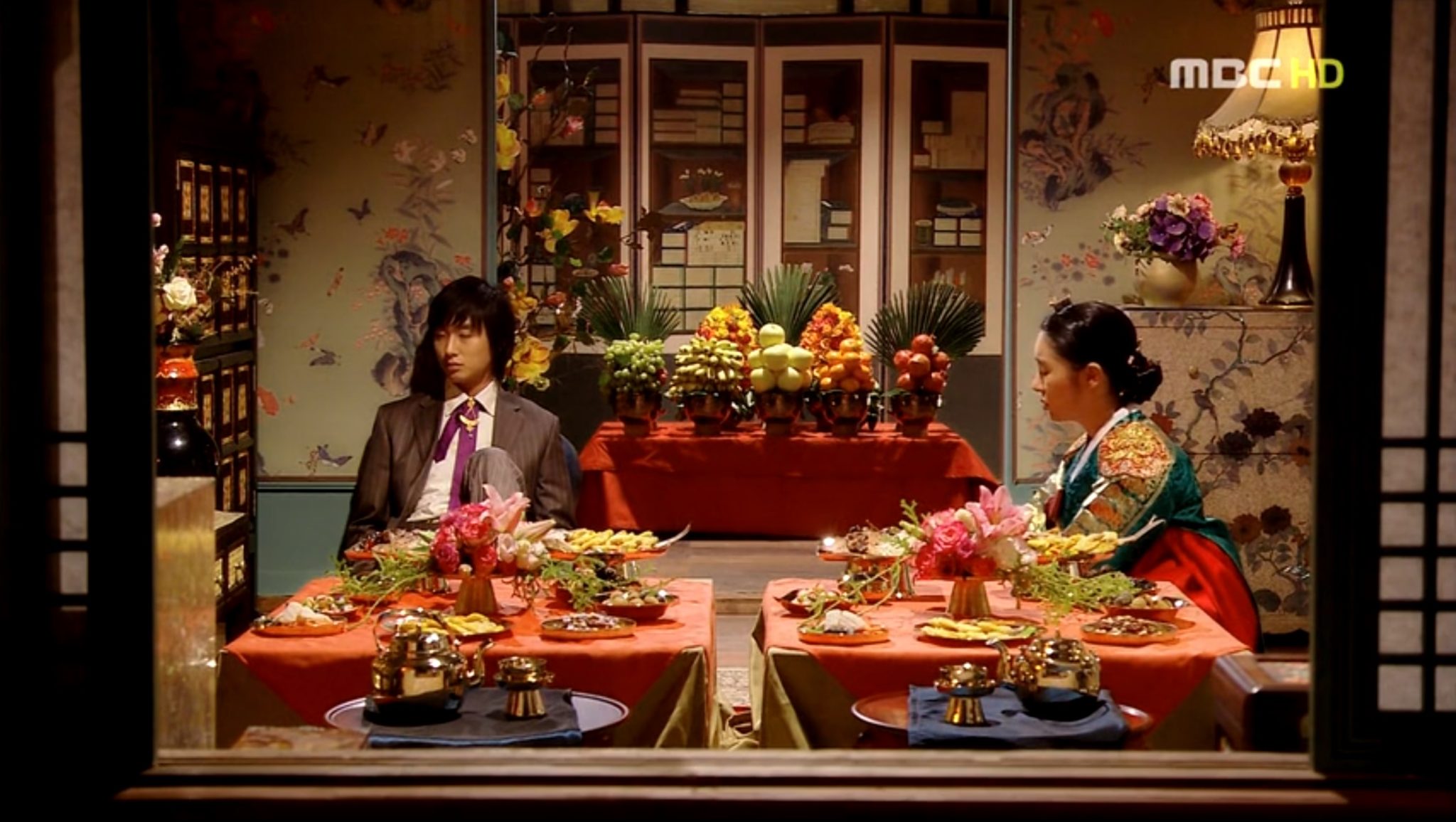
Goong
Then we have marriage as a royal duty. Goong, with its gorgeous sets and whimsical music (and those teddy bears!) exists in a beautiful fantasy that somehow also feels grounded in the real world, despite being set in a fictional modern Korea which has somehow revived its monarchy. Our heroine has to deal with the absurdities of an arranged marriage to the crown prince—whom she hates, incidentally—while still dealing with the mundane struggles of a high school student. The prince is frustratingly aloof (and hung up on his mopey ex-girlfriend) for much of the drama, but the heroine is so down-to-earth, honest, and relatable that I found myself completely invested, even when things started to drag near the end.
The King 2 Hearts has a very different tone, with possible war, international intrigue, and the stakes of Korean reunification teetering on the outcome of this one marriage. The leads’ relationship is fraught from the beginning with not only their antipathy toward each other, but the political machinations of self-interested factions, and the weight of public opinion. (Imagine having all of South Korea as your disapproving mother-in-law.) It’s an intense and emotional ride; for instance, the hero badly hurts the heroine near the beginning of their relationship, which makes his groveling to her later on so satisfying—he literally has to risk his life in order to ask her forgiveness. I loved this expression of his commitment to her, and that the heroine has enough self-respect to hold him accountable, which sadly we don’t often get in dramaland. Jae-ha and Hang-ah’s journey from uneasy allies to a rock-solid royal power couple was moving and unforgettable.
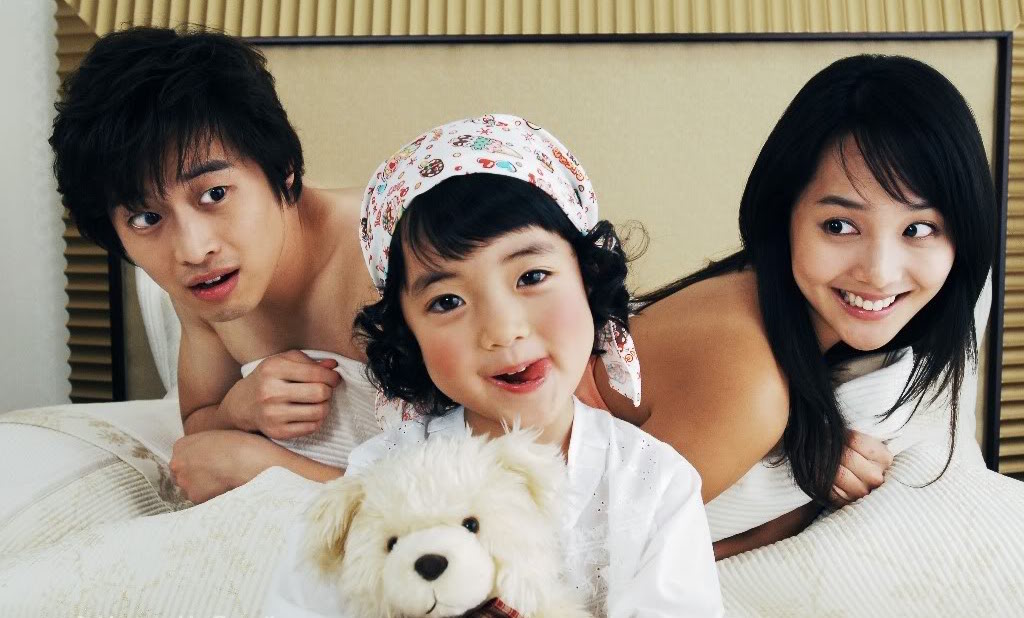
Wonderful Life
Shotgun weddings are rarer in dramaland, but I can’t resist them. Like those above, it’s a trope that would be horrifying in real life, but fascinates in fiction: being legally bound into intimate proximity with a stranger, who is now linked to you forever by shared parenthood. (In dramas, of course, we have the assurance that these are both good people and they’re Destined For Each Other.)
Wonderful Life starts with an immature hero and an innocent heroine who fall into a drunken one-night stand when they find out that his first love and her boyfriend are dating. He refuses to face the consequences the next morning, she decides to “study abroad” when she finds out she’s pregnant, and it’s not until much later that the families force them to marry. It’s full of clichés, but I loved every moment. The chemistry between the leads crackles whether they’re bickering or lovestruck, and a very young Jung Da-bin is achingly precious as their daughter. The latter part of the drama takes a melodramatic turn, but the leads remain sympathetic throughout, and it’s wonderful to see the three of them slowly learn to become a family. Kim Jae-won is great as a rich playboy who slowly learns to be a responsible and loving family man, and Eugene glows as a fiercely protective young mother.
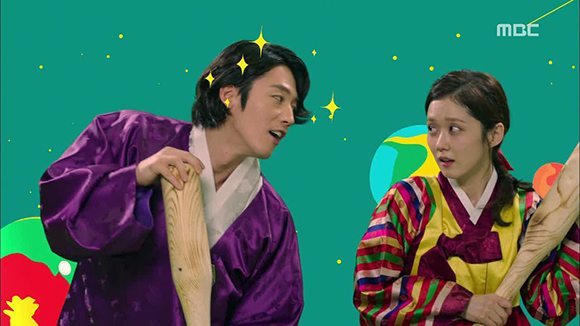
Fated To Love You
Fated To Love You is a remake of the cheesy but cracktastic Taiwanese drama, and the first half of the Korean version was weird and wonderful, with electric chemistry between the OTP. The latter episodes faltered due to some nonsensical plot turns, but I watched to the end for the leads’ phenomenal performances. Weekender Ojakkyo Brothers counts among its many plotlines a middle son who ends up married after a one-night stand with a colleague results in pregnancy. The hijinks that ensue from them learning to live with each other as they slowly fall in love are only one reason to watch this show, which is truly a gem among family dramas.
Delightful Girl Chun-hyang is sort of a shotgun marriage—the leads were forced to marry after their families found them in a compromising situation, despite an absence of actual hanky-panky. Their early dynamic as a married high school couple can be described as I don’t love you but you belong to me, which led to all kinds of jealousy and confusion that was delicious to watch. It’s one of the things that gets me most about this trope—in the early part of the relationship, the married couple has the sense that although they aren’t lovers, there’s a bond between them. The discomfort they feel when third parties try to infringe on that unspoken thing is the first sign that they secretly want the relationship to be real. This is especially true when the couple is very young, as in Delightful Girl and Goong, because their confusion about these new emotions is believable and amusing.
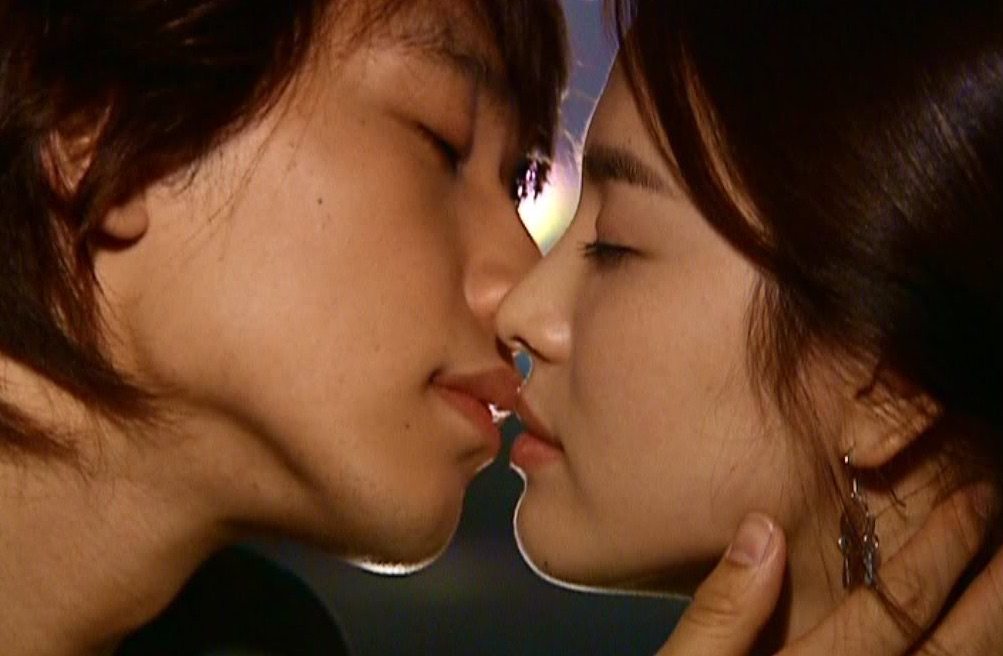
Full House
The contract marriage is arguably the most common of these three in dramaland. This is less of a guilty pleasure for me, because both parties usually enter into the arrangement with their eyes open and expecting to gain something, and there’s no element of coercion (even if the reasoning for the contract is often flimsier than spun sugar).
The granddaddy of all contract marriage dramas is of course Full House, which is dated and probably terrible, but it was one of my first K-dramas, and I’m not brave enough to rewatch it and find out for sure. Song Hye-gyo’s beauty, Rain’s terrible fashion, and that impossible premise are all legendary at this point, but one scene really touched my heart, and it’s the one that’s clearest in my memory now. Strangely, it has nothing to do with the romance, but rather Ji-eun’s anguish when her “in-laws” find out that the marriage was a ruse; her tears come as she remembers how warmly they called her name and welcomed her into the family. I was bawling by the end of that scene.
Contract-marriage dramas run the gamut for reasons the leads decide to tie the knot, or pretend to do so. Their motivations can be tragic: The dying mother in Marriage Contract makes a deal to provide for her daughter’s future, and ends up creating a much-needed family instead. More common (and much easier on the viewer’s heart) is the romantic comedy version, which at its best is nonstop hijinks and opportunities for skinship.
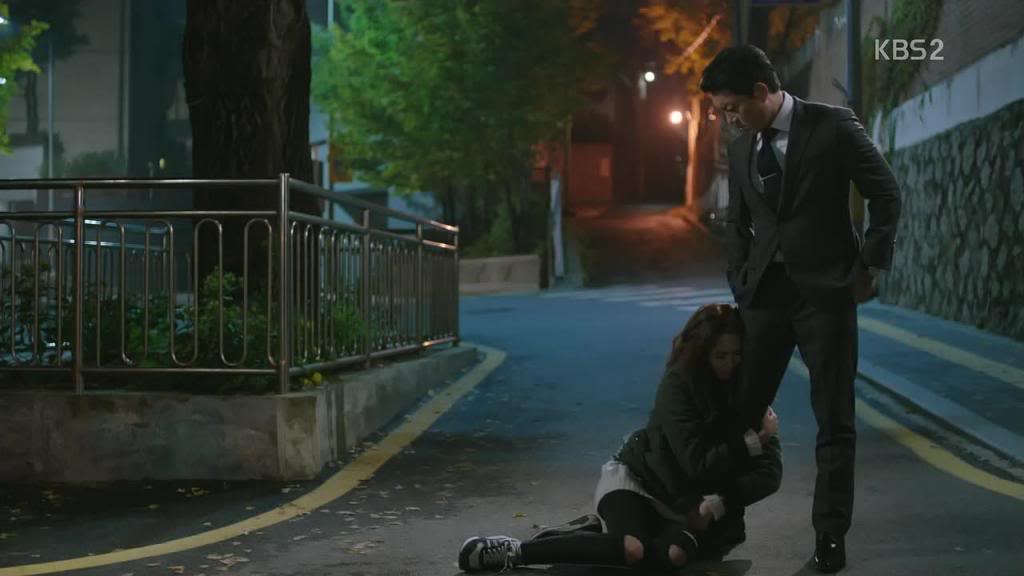
Prime Minister and I
In Prime Minister and I, the heroine proposes marriage to the hero while drunk and clinging to his leg, after he just bailed her out of jail. That scene is perfectly emblematic of the way she bursts into the life of this sober, humorless man and turns it delightfully upside down. Contract marriages facilitate this kind of dynamic by bringing together two people who are so different in their personalities and circumstances that they would otherwise never become close, and accelerating the getting-to-know-you process so we can get to the good stuff faster.
Another example of this is Accidental Couple (also known as That Fool), in which a movie star hires a regular guy to pose as her husband in order to avoid a scandal with her actual boyfriend. The hero clearly recognizes that it’s a business deal and his “wife” is out of his league, yet he still demands respect when she tries to dismiss him the way she’s used to doing with everyone. His quiet dignity is swoonworthy (props to Hwang Jung-min for an excellent performance), and as viewers we fall in love with his decency along with the heroine, as she slowly begins to realize what a treasure she has by her side, and decides to fight for him.
Can Love Become Money is pretty campy and over the top (those velvet suits!), but I enjoyed it immensely. Yeon Jung-hoon is a selfish and money-crazy CEO whose uncle plans to will his massive fortune either to his nephew’s future wife, or to charity. So the hero hatches a scheme to hire beautiful gold-digger Eom Ji-won to marry him in exchange for a small (but still obscene) chunk of that change. A farcical romance ensues between two people who are willing to do almost anything for money—until they realize that they’ve found something that they value more. At heart, it’s the story of two lonely people hiding behind masks who find a family in each other, and that might be the dramaland catnip to beat them all. The ultimate fulfillment of any contract relationship trope is when each person becomes willing to open themselves up to heartbreak by admitting they’re in love for real, if it means a chance at happiness. As for me, whenever two characters are made for each other, and the forces of the drama universe entrap them into marriage so they can figure that out—you can bet I’ll be watching.
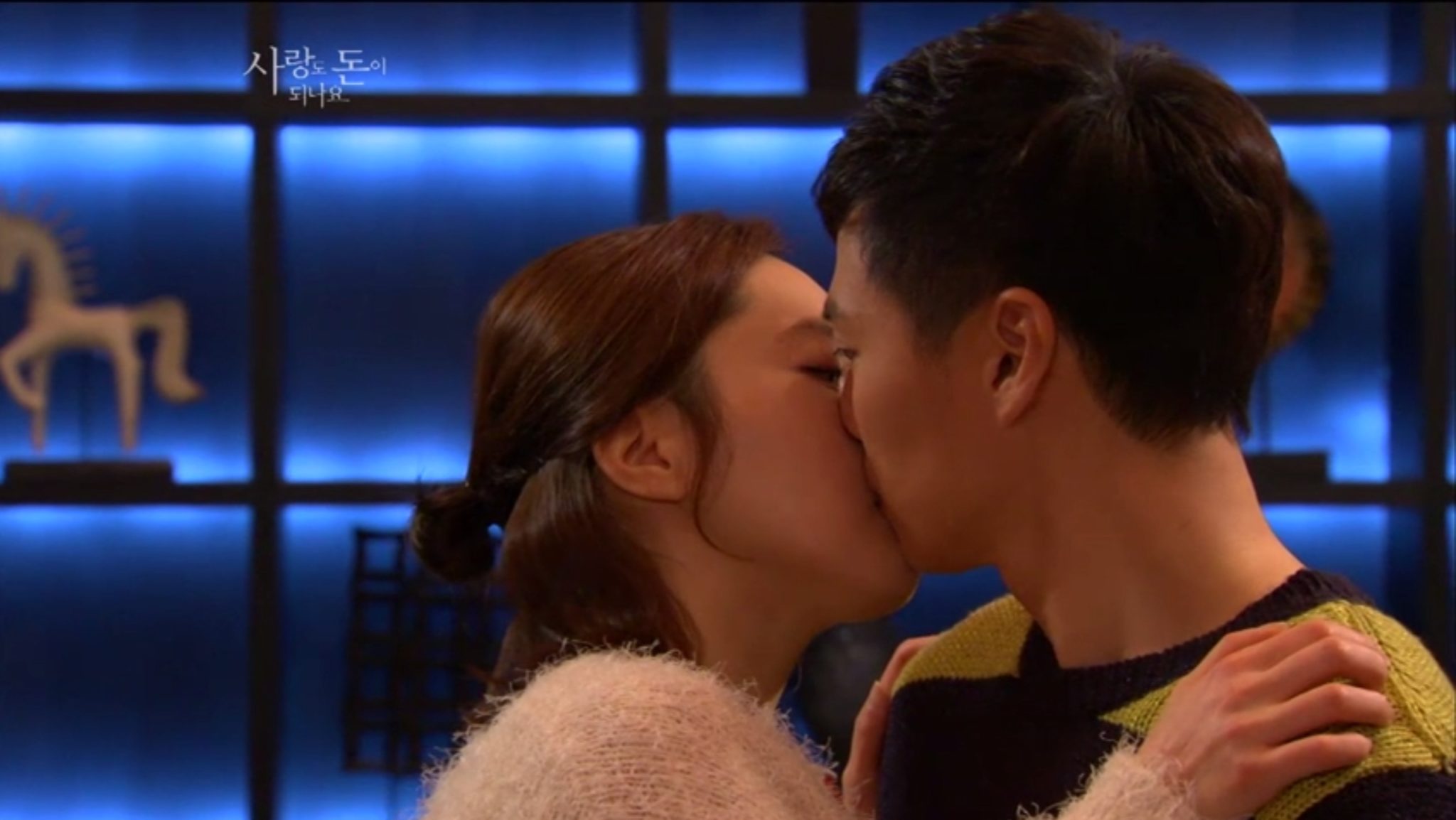
Can Love Become Money
RELATED POSTS
- [Dramaland Catnip] Swooning for dramatic height differences
- [Dramaland Catnip] Ragtag bands of misfits
- [Dramaland Catnip] Finding satisfaction in sad love stories
- [Dramaland Catnip] The magic of bad drama magic
- [Dramaland Catnip] The stinging embarrassment of thinking someone likes you… when they don’t
- [Dramaland Catnip] When the hero falls first
- [Dramaland Catnip] The angst and thrills of dramaland’s reunited lovers
- What’s your dramaland catnip? Tell us your stories!
Tags: Theme of the Month




![[Drama Chat] I’ll stick around dramaland in 2025 because…](https://d263ao8qih4miy.cloudfront.net/wp-content/uploads/2024/01/mmh78_5-scaled.jpg)
![[Beanie Review] Light Shop](https://d263ao8qih4miy.cloudfront.net/wp-content/uploads/2024/12/LightShop_reviewb.jpg)
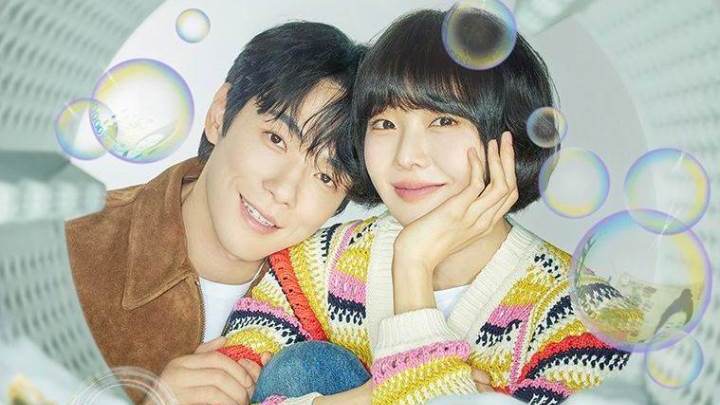



Required fields are marked *
Your email address will not be published. Required fields are marked *
51 ševča
March 20, 2018 at 11:47 AM
Now I'm thinking that it has been long since they've filmed one.
Required fields are marked *